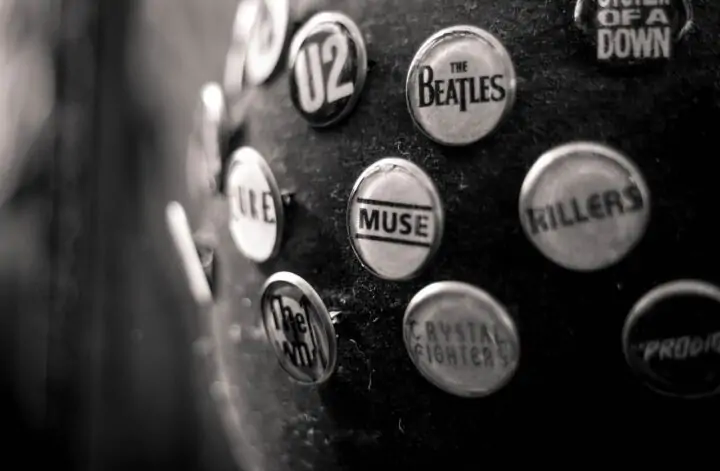Birmingham, a vibrant city at the heart of the UK, boasts a rich tapestry of musical heritage that spans diverse genres and cultures. From the heavy metal anthems of Black Sabbath to the infectious rhythms of Bhangra, Birmingham showcases a unique fusion of sounds that reflects its multicultural population. This dynamic blend not only highlights the evolution of music within the city but also emphasizes its significant role in shaping British cultural identity.
The city’s contributions to music extend well beyond its local scene, influencing national and global trends. Birmingham has forged its own eclectic identity, notably through its heavy metal roots, which paved the way for a burgeoning music scene. At the same time, its strong South Asian community has integrated Bhangra into the city’s musical landscape, illustrating the ways in which different genres can coexist and inspire one another.
Exploring Birmingham’s musical roots reveals how the city’s history has played a pivotal role in the development of various genres. The interplay between rock and traditional South Asian music encapsulates a broader narrative of cultural exchange and innovation, making Birmingham a key player in the evolving story of music in Britain.
Birmingham’s Influence on Heavy Metal and Rock
Birmingham stands as a pivotal city in the development of heavy metal and rock music. Its unique cultural landscape fostered groundbreaking genres and iconic bands that influenced the global music scene.
The Birth of Heavy Metal
Birmingham is often credited as the birthplace of heavy metal, primarily due to the influence of bands like Black Sabbath and Judas Priest. Black Sabbath, formed in 1968, combined dark themes with powerful guitar riffs, shaping the genre’s sound. Their album “Paranoid” became a defining work, influencing generations of musicians.
Judas Priest later introduced twin guitar harmonies and leather-clad aesthetics, solidifying the metal genre. The city’s industrial backdrop and musical heritage provided the perfect setting for these bands to experiment with sound and thematic depth, which became characteristic of heavy metal.
Rise of Punk and Alternative Scenes
The punk movement emerged in Birmingham in the late 1970s, marked by energy and defiance. Bands like The ExpLOded Heads and The Nightingales showcased the city’s raw musical talent and dissatisfaction with mainstream culture. This period saw a fusion of heavy metal influences with punk’s aggressive energy.
The alternative rock scene also flourished, with groups pushing the boundaries of traditional rock. The post-punk era saw bands like Duran Duran and Editors explore new sounds and styles, enhancing the city’s reputation as an innovative music hub.
Indie and Britpop Movements
In the 1990s, Birmingham contributed significantly to the indie and Britpop scenes. The Musical Union provided a platform for emerging artists, leading to the rise of bands like Ocean Colour Scene and The Twang. This era was characterized by catchy melodies and relatable lyrics, resonating with British youth.
Belle and Sebastian, although Scottish, were influenced by Birmingham’s indie culture. The city became known for its vibrant live music venues, fostering a community that celebrated both established and upcoming artists. These movements not only shaped the sound of British music but also reflected broader cultural narratives within society.
The Evolution and Impact of Bhangra in Birmingham
Bhangra has experienced significant growth in Birmingham, reflecting the city’s multicultural landscape. This musical genre has roots in Punjabi folk music and has evolved through various influences, resulting in a vibrant fusion that resonates globally.
Origins of Bhangra and Desi Fusion
Bhangra originated in the Punjab region of India and Pakistan, traditionally serving as a festive dance music during harvests. In Birmingham, this genre became intertwined with local culture during the 1970s as South Asian communities established roots in the city.
Early bhangra artists began to incorporate elements of indipop, Bollywood music, and other popular genres. This led to the emergence of a distinctive sound characterized by lively rhythms, vibrant melodies, and contemporary influences. Artists like Apache Indian played a crucial role in popularizing this fusion, offering a fresh take on traditional bhangra.
Modern Bhangra and the Global Stage
Today, bhangra has transcended its regional origins, making a mark globally. Birmingham hosts numerous bhangra music festivals that attract international audiences and artists. The integration of world music influences has led to collaborations across various genres, enhancing its appeal.
Contemporary bhangra often features electronic beats and hip-hop elements, helping it appeal to younger generations. This modernization continues to pave the way for the genre in the mainstream music scene, where devotional songs and traditional themes maintain a foothold alongside modern productions. Educational workshops and dance classes further promote bhangra, ensuring its growth and relevance in contemporary culture.
Diversity of Musical Genres and Birmingham’s Soundtrack
Birmingham’s vibrant music scene is shaped by a myriad of genres. From soul and reggae to ska and electronic sounds, these styles contribute to a rich tapestry that reflects the city’s cultural diversity and musical heritage.
Soul, Funk, and Reggae Influences
Birmingham has a notable history with soul and funk, particularly through the Northern Soul movement. Venues like the Casino Club established a space where this genre flourished. Local DJs showcased rare records and dance culture emerged, creating a strong sense of community.
Reggae, too, played a pivotal role in Birmingham’s music scene. Artists like Steel Pulse and UB40 brought reggae to wider audiences, blending local influences with classic Jamaican rhythms. The city became a hub for rastafarian culture, fostering unity and resilience among its diverse population.
Ska, Disco, and Dance Music Culture
Ska’s influence permeated the Birmingham music scene, particularly during the late 1970s. Bands such as The Beat and Madness combined upbeat tempos and brass sections, energizing the local crowd. These bands illustrated how Birmingham embraced the genre, creating a lively atmosphere for music lovers.
Disco and dance music further contributed to Birmingham’s nightlife. The local club scene thrived with disco hits that encouraged people to dance. As a result, Birmingham became known for its inclusive and vibrant environment, paving the way for future dance music festivals and events.
Exploring Folk Music and Indigenous Roots
Folk music in Birmingham reflects the city’s heritage and the rich narratives of its communities. Traditional folk songs often highlight personal stories and historical events, showcasing Birmingham’s diverse cultural fabric. Local folk artists often incorporate instruments and rhythms that resonate with the city’s indigenous roots.
This exploration of folk music allows for a connection to Birmingham’s past while also celebrating its contemporary artists. Festivals emphasize local talents, demonstrating the continuing evolution of folk traditions and their role in the city’s soundtrack.
The Electronic and Experimental Revolution
Birmingham became a significant player in electronic music with the rise of the UK techno scene. Labels such as B12 and artists like Model 500 contributed to its storied reputation. The city’s underground scene cultivated innovative electronic sounds that blended techno, house, and dub.
Experimental music flourished in Birmingham, with artists pushing boundaries and exploring new sonic landscapes. This openness to experimentation led to a proliferation of unique sounds and collaborative projects. The influence of electronic music continues to resonate through various genres and events across the city.
Cultural Synthesis: How Birmingham Became a Hub for Musical Innovation
Birmingham’s status as a musical innovation hub stems from its ability to blend diverse genres, community support, and vibrant celebrations. This synthesis fosters a unique soundscape where various influences converge, providing fertile ground for creativity.
Blending Genres and Creating New Sounds
Birmingham’s music scene showcases a rich tapestry of genres, merging elements from heavy metal to Bhangra. This fusion creates contemporary sounds that resonate beyond traditional boundaries. Local bands often incorporate diverse influences, resulting in a vibrant auditory experience.
Prominent artists and musicians actively participate in collaborative projects, pushing the limits of creativity. The establishment of record labels and studios promotes experimentation and enables emerging talent to thrive.
Notably, Birmingham serves as a backdrop for world music, enriching the cultural landscape. By embracing various musical styles, Birmingham cultivates a dynamic environment that encourages innovation while preserving its historical roots.
The Role of Community and Support
Community support plays a crucial role in Birmingham’s musical evolution. Local organizations and initiatives offer resources, education, and mentorship to aspiring musicians. This nurturing atmosphere fosters unity, allowing individuals to share their talents and collaborate effectively.
Venues across the city host open mics, jam sessions, and workshops, inviting diverse voices to contribute. These platforms empower artists and provide opportunities for networking, enhancing the sense of community. This collective effort strengthens the bond among musicians, fostering collaboration that leads to new creative expressions.
Support extends beyond the musical realm, as local businesses and stakeholders invest in events that spotlight Birmingham’s musical diversity. Together, they create an ecosystem that sustains artistic growth and celebrates the city’s unique cultural identity.
Carnival, Festivals, and Urban Celebrations
Birmingham’s carnival and festival scene act as a vibrant showcase for its musical innovation. Events like the Birmingham International Carnival highlight the city’s diversity, attracting thousands to participate in lively celebrations that blend music, dance, and cultural expressions.
These gatherings provide a stage for various music genres, allowing artists to present their work to a broader audience. The atmospheric ambiance prompts collaboration among performers, enhancing unity within the artistic community.
Additionally, these urban celebrations become soundtracks for shared experiences, fostering a sense of belonging among attendees. By celebrating its cultural diversity, Birmingham solidifies its position as a hub for creativity and musical exploration.
Modern Birmingham: The Ongoing Evolution of Its Musical Roots
Birmingham’s music scene today showcases a rich tapestry of influences and styles. From contemporary pop to global genres, the city continues to evolve, embracing new sounds and cultures while honoring its traditional roots.
Contemporary Music Scenes
In recent years, Birmingham has become a hub for diverse musical genres, ranging from indie and electronic to downtempo and lounge music. The emergence of local artists in these genres has enriched the cultural landscape. Venues like the Hare & Hounds and The Sunflower Lounge support live performances, fostering a community of musicians and music lovers.
Key players in the contemporary scene include bands blending pop with influences from Latin and krautrock. This eclectic mix attracts a variety of audiences, creating an inclusive atmosphere. Events such as the Birmingham Music Awards spotlight the city’s vibrant talent, encouraging collaborations that push musical boundaries.
Global Connections and Influences
Birmingham’s musical evolution is significantly shaped by global connections. The city’s multicultural population has introduced sounds and styles from around the world. For instance, the influence of Indonesian rock and Shibuya-kei can be observed in local music festivals, showcasing a blend of cultures.
Collaborations between artists from different backgrounds foster innovation. This approach has resulted in unique musical fusions, enriching the local music scene. With initiatives encouraging cross-cultural projects, Birmingham remains a dynamic crossroads for global music influences, making it a vital player in the contemporary music landscape.
Photo by Nikita Khandelwal: https://www.pexels.com/photo/gray-and-black-dress-pins-632656/





 Em Português
Em Português En Español
En Español